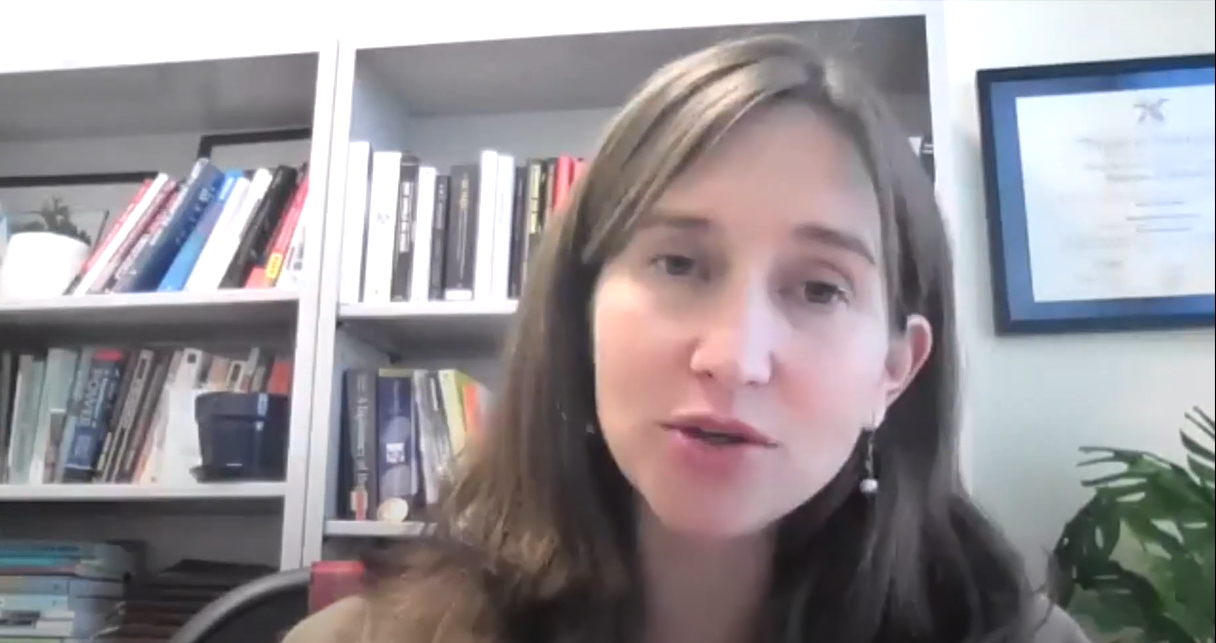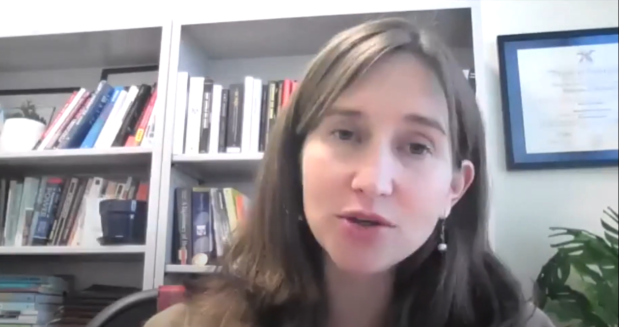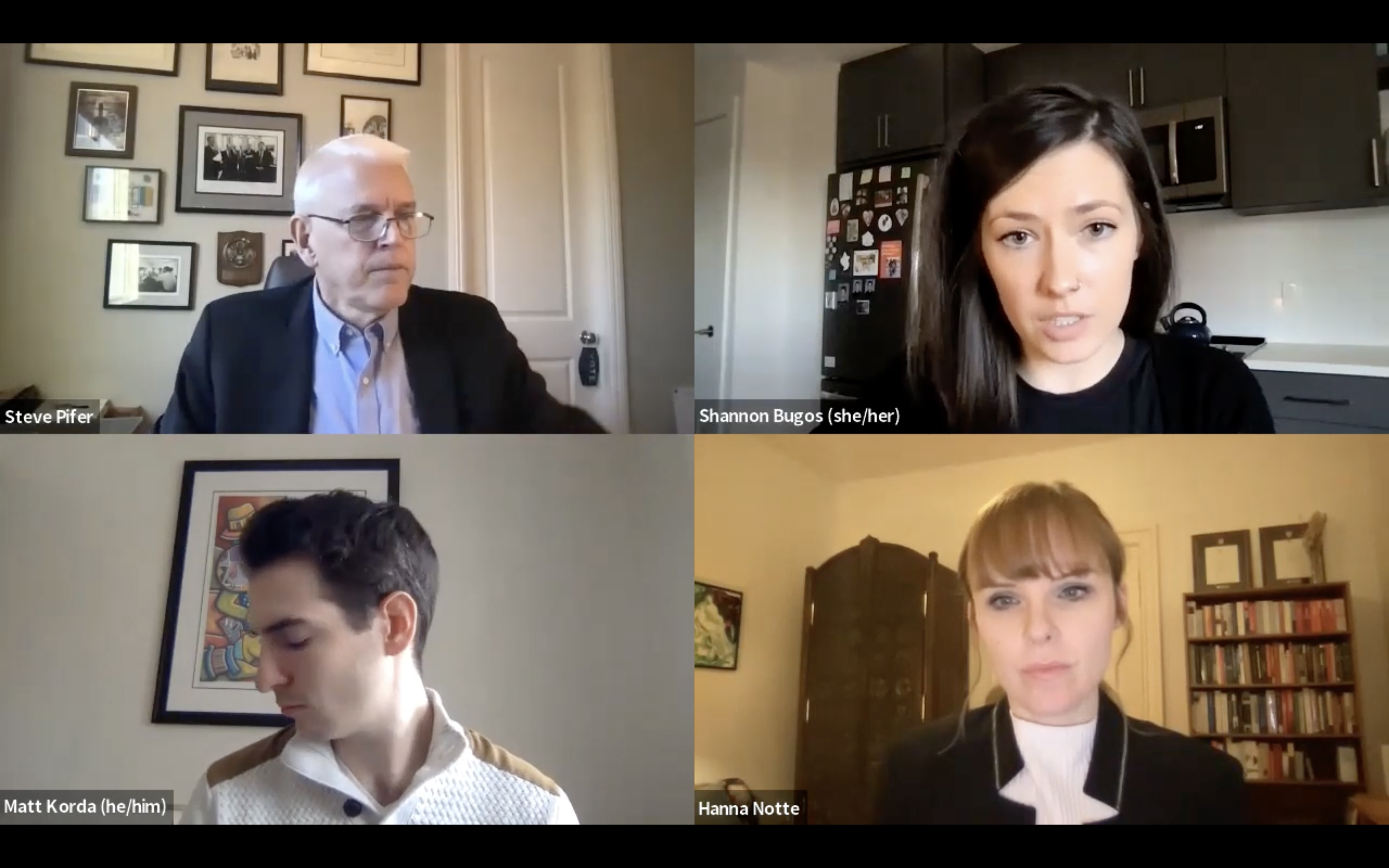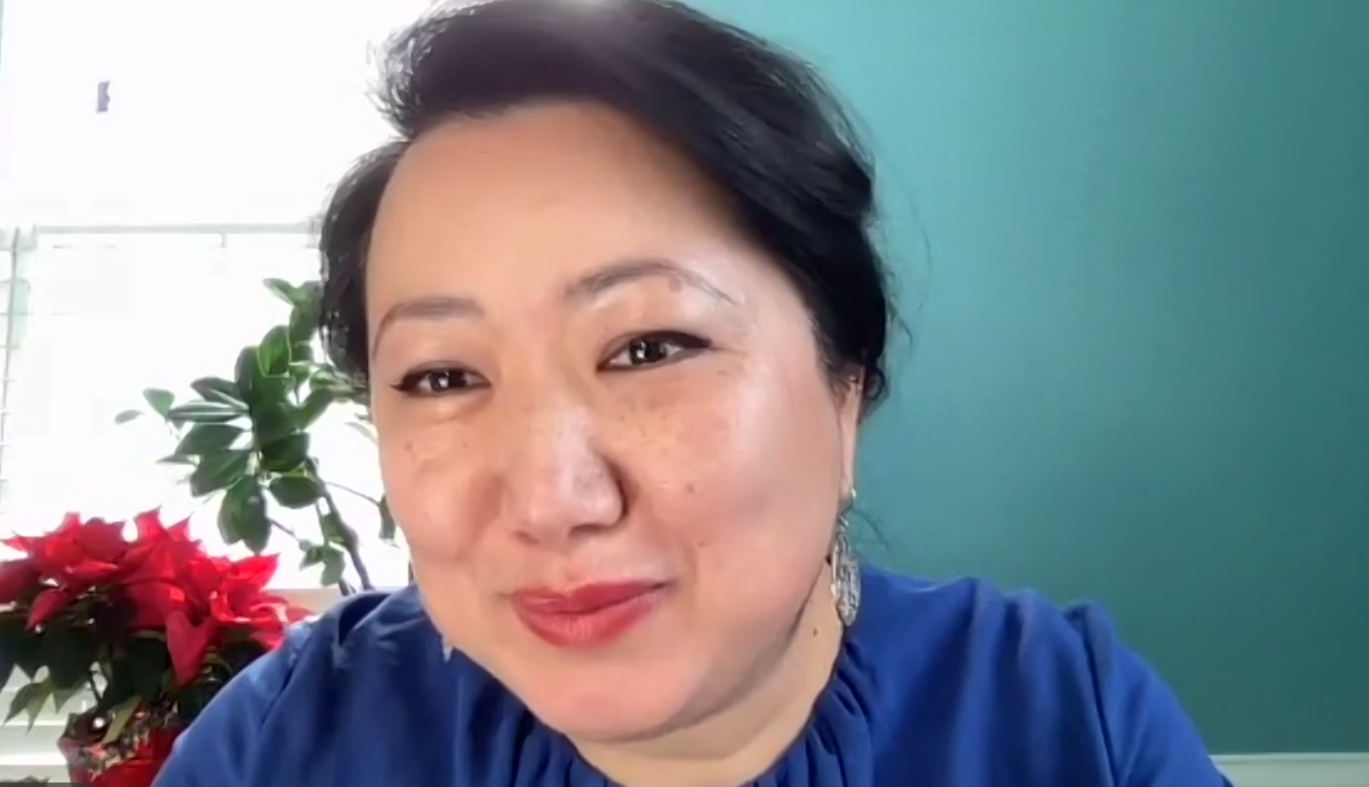
On 28 November 2022, the VCDNP hosted a webinar with Dr. Rebecca Davis Gibbons, an expert on the nuclear non-proliferation regime and nuclear weapons ban movement, introducing her new book The Hegemon's Toolkit: US Leadership and the Politics of the Non-Proliferation Regime (Cornell University Press, 2022). The event was moderated by VCDNP Senior Research Associate Dr. Hanna Notte.
The Hegemon’s Toolkit makes the case that the non-proliferation regime’s enduring efficacy in preventing the spread of nuclear weapons can largely be attributed to the political leadership of the United States. Starting from President Kennedy’s historic 1963 speech, in which he proclaimed his determination to prevent a world with numerous nuclear-armed states, the United States invested immense political capital and diplomatic effort in pursuing the universalisation of the Non-Proliferation Treaty (NPT) and other instruments that support it. Other major powers of the time, including the Soviet Union, the author argues, took on a cooperative but not leading role.
The book presents several important findings regarding the United States’ past and future role. Establishing the non-proliferation regime meant far more than the initial creation of an institution like the NPT. It has also required the United States to lead efforts to adapt the non-proliferation regime to changes in the global distribution of power. In so doing, the United States has leveraged its soft power but also its material power to persuade both US allies and antagonists to join the regime. Should US material power continue to decline in relation to its competitor China, it will lose important leverage to uphold the non-proliferation regime. As a consequence, according to Dr. Davis Gibbons, the emergence of a multipolar world order would seriously undermine the non-proliferation regime, as China has not demonstrated willingness to provide or share in the leadership necessary to keep the regime strong and healthy.

During the webinar, Dr. Davis Gibbons addressed questions regarding the Trump Administration’s role in reducing US global leadership, possible scenarios for a collapse of the non-proliferation regime, and the effect of the nuclear weapons prohibition movement on the future of the Non-Proliferation Treaty.
Dr. Davis Gibbons is Assistant Professor of Political Science at the University of Southern Maine. Previously, she was a post-doctoral fellow with the Project on Managing the Atom at Harvard University’s Belfer Center for Science and International Affairs, as well as a pre-doctoral Stanton Nuclear Security Fellow at the RAND Corporation. Dr. Davis Gibbons obtained her PhD in Government from Georgetown University, and the new book builds on her PhD dissertation.
Watch the full recording of the webinar below.


By continuing to use the site, you agree to the use of cookies. more information
The cookie settings on this website are set to "allow cookies" to give you the best browsing experience possible. If you continue to use this website without changing your cookie settings or you click "Accept" below then you are consenting to this.